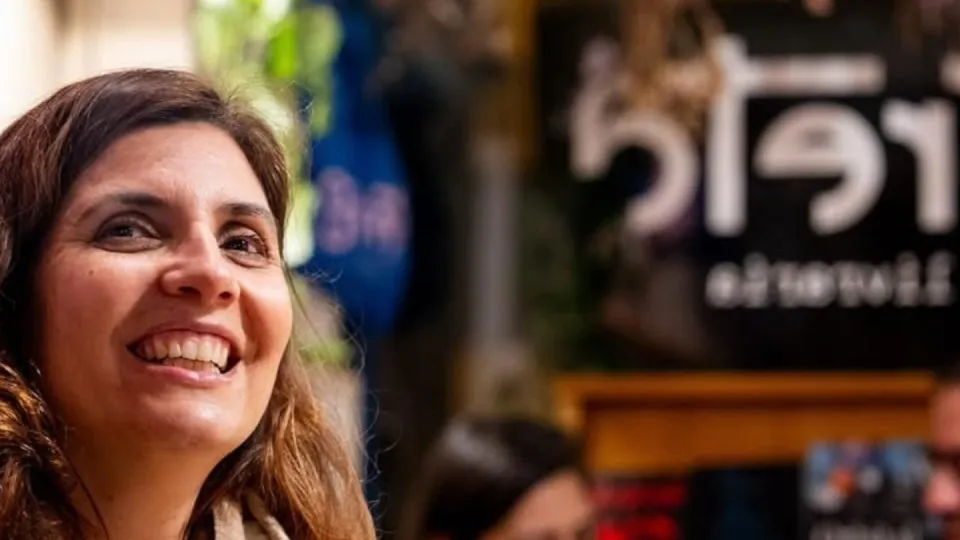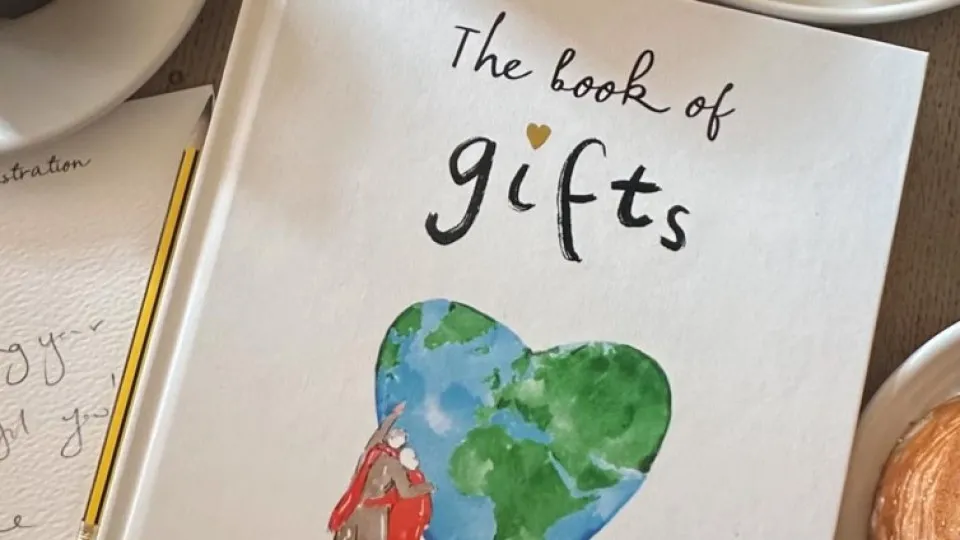
The festival focuses on themes of memory and cultural crossroads, emphasizing dialogue between Portuguese-language literature and other literary traditions worldwide.
Rute Simões Ribeiro, published by Editora Nós – Portugal, will participate in two debate panels and a creative workshop aimed at young audiences.
The author will join the panel “Writing Futures” alongside Mariana Salomão Carrara, Eliane Marques, and Ricardo Ramos Filho, and the panel “The Straight Is a Curve That Doesn’t Dream,” with Daniella Zupo, Hugo Monteiro Ferreira, and Afonso Borges.
Her involvement also includes the workshop “Literary Creation for the Building of Wings,” as announced by Editora Nós.
This new publishing house in Portugal released Mariana Salomão Carrara’s books “It’s Always the Time of Our Death, Amen” and “If God Calls Me I Won’t Go” this year. Carrara had been published previously only by Companhia das Letras, with works such as “If Not for the Syllables of Saturday” and “The Loneliest Tree in the World.”
According to Rute Simões Ribeiro, the festival’s gatherings represent “a great desire to listen to others, to confront perspectives about the world, and to realize the meeting of diversity through language, affection, and freedom.”
This year’s festival edition also features two other non-Brazilian authors besides Rute Simões Ribeiro: Cameroonian Léonora Miano and Rwandan Scholastique Mukasonga, the latter being honored at the event alongside Brazilian author Itamar Vieira Júnior.
Scholastique Mukasonga, published in Brazil by Editora Nós, is the author of the memoir “Cockroaches” about the Rwandan Tutsi genocide, released in Portugal by Livros do Brasil. Meanwhile, Léonora Miano’s novel “The Station of the Shadow,” addressing the capture of young Africans by slave traders in a sub-Saharan village, is published by Antígona.
Bahian author Itamar Vieira Júnior, winner of the LeYa Prize with “Torto Arado,” also has “Doramar or The Odyssey” and “Save the Fire” published in Portugal.
Rute Simões Ribeiro’s participation aligns with Editora Nós’s strategy—established in Portugal in 2024 as an extension of its Brazilian counterpart—to assert an independent and transnational editorial voice, blending Portuguese-speaking authors with other literary expressions in French, Italian, and English.
Thus, the publisher seeks to build bridges and promote the meeting of different literary traditions, as emphasized.
“In this context, the participation of writers like Mariana Salomão Carrara, Simone Paulino, and Calila das Mercês, alongside Rute Simões Ribeiro, published by Editora Nós, not only reinforces the vitality of Portuguese-language literature but also the ambition to think of publishing as a place for convergence and shared temporalities.”
Rute Simões Ribeiro holds a law degree from the University of Coimbra. In 2015, she was a finalist for the LeYa Prize with the novel “Essay on Duty,” and in 2023, she won the Hugo Santos Prize with “The Man Without Me,” published this year by Editora Nós, which also released “The Brief History of the Eternal Girl” at the same time.
Editora Nós’s editorial line aims to value the uniqueness of each literary voice, the plurality of cultural expressions, and the creation of bridges between geographies and languages.
Founded as an independent publisher, it seeks not only to publish books but also to consciously intervene in contemporary thought, recognizing publishing as a cultural and political act, as stated by the publisher in a communiqué.
“We are committed to Brazilian, Portuguese, and other Portuguese-speaking countries’ literature, without overlooking authors of French, Italian, and English language, building a catalog that itself constitutes a literary genre, coherent and recognizable,” it states.
The publisher also highlights its dedication to projects of significant aesthetic and intellectual depth, capable of engaging with criticism, readers, and other arts, committing to “edit with rigor and consistency, revealing new authors and recovering classics.”
Its catalog includes authors such as Adelaide Ivánova, Afonso Borges, Ana Johann, João Guilhoto, Helena Machado, Marcia Tiburi, Mariana Salomão Carrara, Scholastique Mukasonga, David Diop, Pauline Delabroy-Allard, Ágota Kristóf, as well as Virginia Woolf, Edmondo de Amicis, William James, and Étienne de La Boétie.




